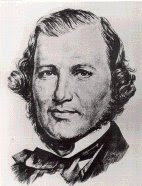After a year that has been defined by argument over the limits to free expression in Canada, the controversial section 13.1 of the Canadian Human Rights Acts - the section that has been used by Canadian Human Rights Commissions to try Ezra Levant and Mark Steyn for 'inciting hatred and islamophobia' - has finally come up for debate in parliament.
CTV:
The controversial section of the Canadian Human Rights Act governing hate speech comes under scrutiny today when federal politicians decide whether to debate the limits it places on freedom of expression.
Brian Storseth, a Conservative MP, has asked the Commons justice committee to review Section 13 of the act, which contains provisions that deal with hate messages. Mr. Storseth also wants the committee to review the mandate of the commission itself.
It is imperative that the Canadian government initiates a massive overhaul of its policy on hate speech. Unfortunately, this is still a long-term goal since removing section 13.1 will only be the first step - albeit an important first step - towards restoring the complete freedom of expression in Canada.
If this long-term goal is to be realized, however, it will require solidarity on the part of Conservative MPs and a certain degree of non-partisan and cultural support for free speech as well. I'm not at all convinced that either of these conditions have been fully satisfied at this juncture.
Proponents of Section 13 argue that hate speech should remain under the umbrella of human-rights legislation. The Canadian Jewish Congress, for instance, expressed disappointment in Prof. Moon's position, saying the Jewish community knows how devastating hate propaganda can be.
Members of the Canadian Jewish Congress ought to be ashamed of themselves and their organization. The implication of their support for section 13.1 is that propaganda was a contributing factor to the horror of the Holocaust. In fact, Hitler was a strong advocate for hate speech laws. When the government is allowed to limit the expression of ideas in the citizenry, it is only a matter of time before one false idea or another achieves an advocate in power and then that idea becomes government policy. The safest way of protecting a minority is to allow the completely free exchange of ideas. This way, unreasonable ideas are met with reasonable ones. Bad speech is met with good speech.
As Alan Borovoy explains:
Remarkably, pre-Hitler Germany had laws very much like the Canadian anti-hate law. Moreover, those laws were enforced with some vigour. During the 15 years before Hitler came to power, there were more than 200 prosecutions based on anti-Semitic speech. And, in the opinion of the leading Jewish organization of that era, no more than 10 per cent of the cases were mishandled by the authorities. As subsequent history so painfully testifies, this type of legislation proved ineffectual on the one occasion when there was a real argument for it.
Unsurprisingly, the Liberal Party of Canada once again missed its cue to convince Canadians that it hasn't sunk into the depths of moral relativism and evil.
Liberal MP Brian Murphy said his party is not in favour of removing Section 13 from the Canadian Human Rights Act. "It is a unique tool for people who are being discriminated against and it's an added protection," he said.
Unique. That's one way of putting it. The Human Rights Commissions are able to trample over the individual rights of Canadian citizens, forcing them to pay thousands upon thousands of dollars in legal fees, for making statements or republishing cartoons that offend the perennially offended. Yes, I suppose that is rather unique. Unique for a free country, at least.
Ezra Levant appears to have relatively high hopes for the elimination of 13.1 now that it has achieved attention from the federal government. After all, hasn't Harper condemned the section personally and explicitly?
The Canadian Human Rights Commission is under massive scrutiny for its misbehaviour. Its own hand-picked consultant, Prof. Richard Moon, recommends that its censorship provisions be scrapped. And Prime Minister Stephen Harper tells Maclean's magazine in a year-end interview with him that Canada's HRCs are "abusive" and their conduct is "egregious".
That sounds great, Ezra, except you're dropping the context of the Prime Minister's comments completely.
Here is what PM Harper actually said:
The government has no plans to do [anything about 13.1] ... And it is a very tricky issue of public policy because obviously, as we’ve seen, some of these powers can be abused. But they do exist for valid reasons, which is obviously to prevent public airwaves from being used to disseminate hate against vulnerable members of our society. That’s a valid objective. It’s probably the case that we haven’t got the balance right, but I’m not sure the government today has any answer on what an appropriate balance would be.
I'm sorry, Ezra, but don't you think that your representation of Harper's position on the HRCs is giving him way too much credit?
The fight for free speech must continue to intensify if we are to secure real change. The solution will not be found in deceiving ourselves into thinking that the government is more ideologically committed to securing our freedoms than it has time and again proven to be.
All of that being said, however, it is a good sign that the issue is at least being debated by federal politicians, even if the NDP and Liberals have unambiguously decided to support the section and even though Harper has patently refused to take a stand on the issue.
Conservatives have miles to go before they sleep if they wish to achieve real freedom of speech in Canada in the near future. Not to worry, though. I've got plenty of coffee stored up to get me through this long night.

(*)












|